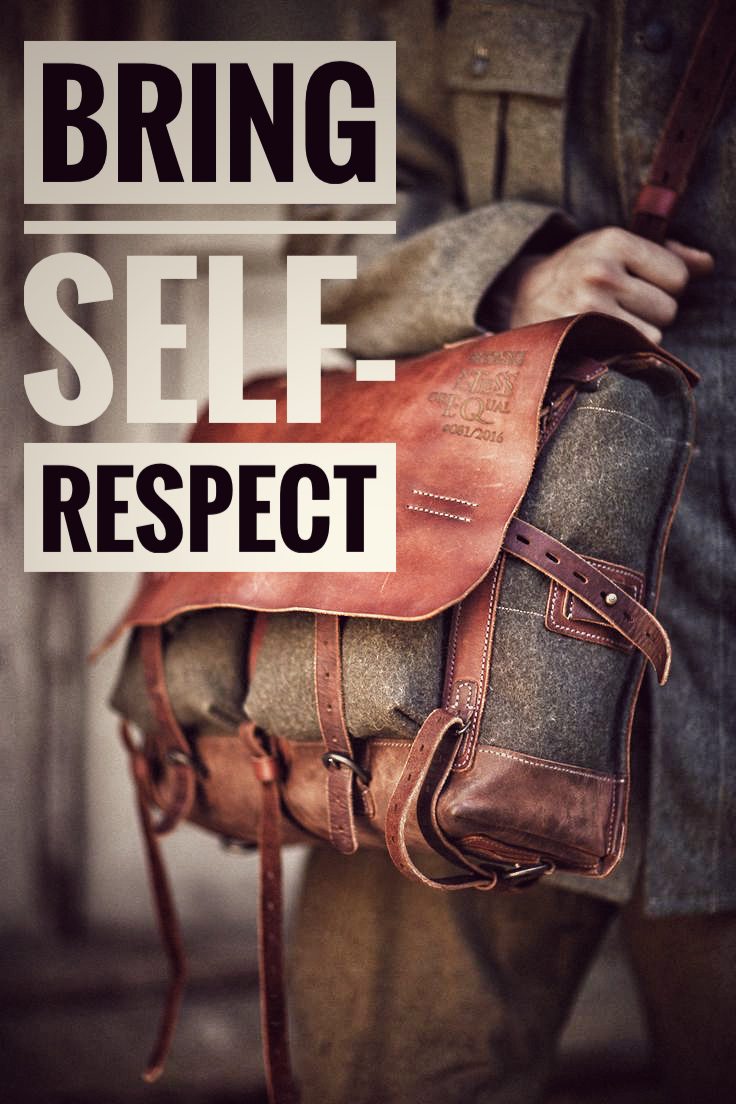What You Really Need to Take to University
Essentials for campus (and for
life)

Written by Ellis Perry
For the college-bound, there’s
no shortage of advice out there about what to buy, what to bring, what to pack,
and how to pack it. These lists use the phrase “bring to college” in the narrow
sense, the sense that implies boxes and bags, totes and Tupperware, containers
and cargo. Some of these shortlists are aligned with the interests of specific
merchants of goods and services. For your convenience, of course.
That’s not what we’re talking
about in this article. We’re talking about the sorts of things you can’t tie-up
with string or tie-down with bungee cords. We’re addressing the ties that bind
you to higher ideals. If you’re not heading off to university, forward this to
someone who is embarking. You might wish to have a read anyway.

Purpose
The Latin phrase sine qua non
means “without which not,” and it’s a fancy way of saying indispensable. Your
sense of purpose is the sine qua non of your success at college and in life
generally. It’s the most important thing to bring, and the one thing you’d
damned well better have with you. Your sense of purpose should be reducible to
a single sentence:
My purpose is to outgrow
inferior versions of myself and to cultivate better versions of myself.
There are four key concepts
here: growth, cultivation, activity, and what is captured by the word
“versions.”
The years you invest in
higher-studies will be years of transition and transformation. Change is
inevitable, but you should have a hand in that change. That’s where the
activity of cultivation comes in.
Here’s a simple analogy. If
one is trying to lose weight or to develop muscle mass or definition (etc.),
the changes which are part of the process of being slimmer, getting stronger or
more toned, are realized in large part through intentional activity. The
changes happen gradually (and perhaps more slowly than we wish), and they
“happen to” us, but they don’t just happen. We make them happen. We are active
in cultivating the result.
The word “versions” matters
too. There is a version of you that exists before you set-off for college.
Compared with the version of you that entered high school, this “you” is both
older, and in some respects an improvement. The version of you who will be
looking back upon freshman year should be an older and improved version of the
person looking ahead to it.
If your medium-term goals
include being a college graduate who is attractive to employers, then your
purpose is to be active in those changes which will get you through to
graduation and into the profession at which you are aiming. If your goal is to
leave college four (or so) years later as a better-informed, more mature, and
more worldly version of your current self, then your daily task is to be
mindful of whether your actions and choices consistent with your purpose, and
whether they are are leading you to that goal.
Clarity of purpose keeps you
focused on the importance of mission-success.
Books are written about this
subject, and we can’t cover everything in 2500 words or less. The point is to know
your goals and distinguish them (which might be multiple) from your purpose
(which is singular).

Self-Respect
One could distinguish between
self-respect and self-worth (and self-esteem, etc.), and sometimes these distinctions
are useful. We’ll risk oversimplification and treat them as synonymous.
The reason you should have and
should know clearly your purpose is so you respect yourself enough to have a
purpose. Whatever else “self-respect” is, it is a commitment to your
overarching purpose: thoughtful, ongoing self-cultivation. One ought not to be
as a cork bobbing on the sea — rising here, falling there, rolling off the
crest of each wave, responding and reacting to circumstances, drifting, being
acted upon. This is incompatible with a
sense of purpose. One cannot have a sense of purpose without having a sense of
self-respect; and if you do not have a clear sense of the former, it may be
that you lack a clear sense of the latter.
Value who you are. Value what
you will be. But above all, value yourself as the agent responsible for the
changes that will make you who you intend to be.

Lot’s of fuss is made these
days about empathy. This is a very contemporary conception, and it is no real
improvement upon classical conceptions of compassion. Whether you call it
empathy or compassion, both respect-for-self, and respect-for-others demand
patience.
We each have our flaws, and
we’re all fragile in our own way. If you have self-respect, you will be engaged
in crafting a better version of yourself. Craftsmanship requires patience. If
you have compassion for others, it is because you acknowledge your own
limitations and imperfections. Patience is the linchpin: you accept yourself as
an imperfect work-in-progress; you acknowledge that cultivated-changes and
improvements take time; so you know you need to have patience.
Being patient and mindful of
the difficulty of maintaining your own sense of purpose, you will find it
easier to be patient with others. If you have patience with others, it will be
easier to cultivate and maintain an expansive sense of compassion. It all comes
full-circle.
If you have patience with
yourself, it will be easier to sustain self-respect.
Fun fact: the Chinese word
into which we translate the English word ‘time’ is shijian (时间). The first of the two characters (时 shi) consists of two parts. The left-hand
side is the character for “day” (ri 日),
and the right-hand side is the character for “to measure” (cun 寸).
When “day-measure” is added to jian (间), what is communicated is something like
“the space between moments.” Some have contended that the Western concept of
“time” doesn’t easily map onto the Chinese language.

CHANGE: “… Chinese thought,
having a greater sense of the fluidity of life, provides a more flexible way of
understanding everyday transformations…” GoodReads
Years, months, weeks, days,
hours, minutes — these are all abstractions which help us to reckon the space
between moments. Give time to time. Be active in cultivating patience.
Patience nourishes compassion...

Courage
Courage isn’t the absence of
fear. Courage is knowledge of when to be afraid. Courage resides in an
informed, seasoned sense of what’s really dangerous as opposed to what seems
dangerous.
If you have self-respect, a
sense of purpose, and a strong sense of compassion, then you will have limits —
clear boundaries you will not trespass. There are things you will not do
because they are clearly harmful to yourself or to others, or are inimical to
your overarching purpose. But when there is no hazard to others, no grave
danger to oneself, and no violation of your established principles, experiment.
Choose your mistakes wisely.

Judgment
Yes. That’s what we said. It
is a great tragedy that justified concern about hate and bigotry has resulted
in a repurposing of the verb discriminate and the noun prejudice; but it is
absurd that “judgment” and “judging” are now talked about as bad things. We could dodge the inevitable bullets of
criticism simply by skirting this semantic minefield and by using the word
‘distinguish,’ but now is as good a time as any to urge the rehabilitation of
the proper conceptions of discrimination, prejudice, and judgment.
Discern and discriminate.
Rejection does not require condemnation.
Distinguish between persons
who will be allies to you both on your missions and with respect to your
overarching purpose. Discern which mistakes will be least difficult to recover
from, but do not fear mistakes: error is the most valuable corrective to the
limits of our knowledge and experience. Discriminate between true and apparent
value, and cultivate a strong prejudice against those things which lack true
value. Distinguish between the frightening and the scary. Work to develop a
prejudice against shortcuts, the easy and the painless, and those things which
are valued only because they are popular and trending. Learn to discriminate
between sense and nonsense, and strive to develop a prejudice against the
latter.
Be judgmental. The human
intellect exists for judgment, and not data-processing or information-parsing.
To judge is to assess. Assess what is good for or bad for oneself, helpful or
inimical to one’s purpose, nourishing or detrimental to one’s self-respect,
health, and well-being. Do not confuse being judgmental with being impatient,
uncharitable, rude, abrasive, unfriendly, or unfeeling. Compassion requires
judgment: this person needs assistance, this person deserves lots of patience,
this person will benefit from a kind word or friendly gesture. If one is not
judgmental, one cannot be compassionate. If one cannot be discerning and
discriminating, and cannot cultivate useful prejudices, one cannot sustain and
nourish one’s sense of purpose.
Assess, evaluate, and judge —
just don’t be an asshole about it.

We started this list with a
Latin phrase (sine qua non), and we’re ending it with a Greek word: kairos
(καιροσ). This is one of two Greek words for “time,” the other being kronos
(κρονοσ). Kronos gives us the words chronology and chronological, and it refers
to “time” as a divisible, measurable entity. That’s why pricey wristwatches are
sometimes billed as chronometers — they are time-measurers. Another fun fact:
the Greek metron (μετρον) – as in ‘meter’ and referring to measurement – is
very similar to the Chinese term for measurement (cun 寸), which looks like a carpenter’s square with
a single pencil mark.
Kairos, on the other hand,
means something like “seasonable” or “timely,” in the sense of it is the right
time to do X and it is not the best time to do Y. This matters because the
question Should I? often requires an answer that refers to the seasonableness
or timeliness of the act in question. For example, it is one thing to praise
courage, it is another thing to know when one should accept a hazard; it is
good to be compassionate, but it is not always easy to know when (or how best)
to show compassion. The phrase kairological sensitivity might not exist
anywhere else on Earth except this article, but it refers to the principle now
under discussion. It is something you absolutely need to bring and begin to
cultivate.
Like a sense of proportion,
kairological sensitivity isn’t the sort of thing one is born with. The truth
is, one can begin to pay attention to it and cultivate it only after it’s been
pointed-out and given a name. In a way, the sense of timeliness is directly
related to patience, but really it is most directly related to one’s powers of
discernment and judgment generally. Developing kairological sensitivity takes
time. It requires lots of time to develop and mature.
And it’s worth taking
seriously. This is the sense that will save your backside when an unsettled
doubt has left you wondering whether or not to do something. You might with
good reason believe that D is the right thing to do, or that it would be
permissible to do D, or that it would be not-impermissible to do D. The next
question ought to be Is now the proper time, circumstance, or occasion to do D?
An action might be right (or: not wrong), but knowing so for certain isn’t easy.
When you’re very unsure, be patient, and ask: Even if I did know for sure
whether this is the right thing to do, am I sure also that this is the right
time to do it?
Develop the habit of asking
about the timeliness of an action or undertaking.
Remember, the word ‘campus’
comes from and is the Latin word for ‘field.’ We’ve written this with an eye to
the undergraduate embarking for school. Insofar as all of us are growing,
changing, and learning, we hope the relevance and reach of these observations
are as wide as the campus of life is broad.
Ellis Perry
SOURCE: THE GENTLEMANUAL
Comments
Post a Comment